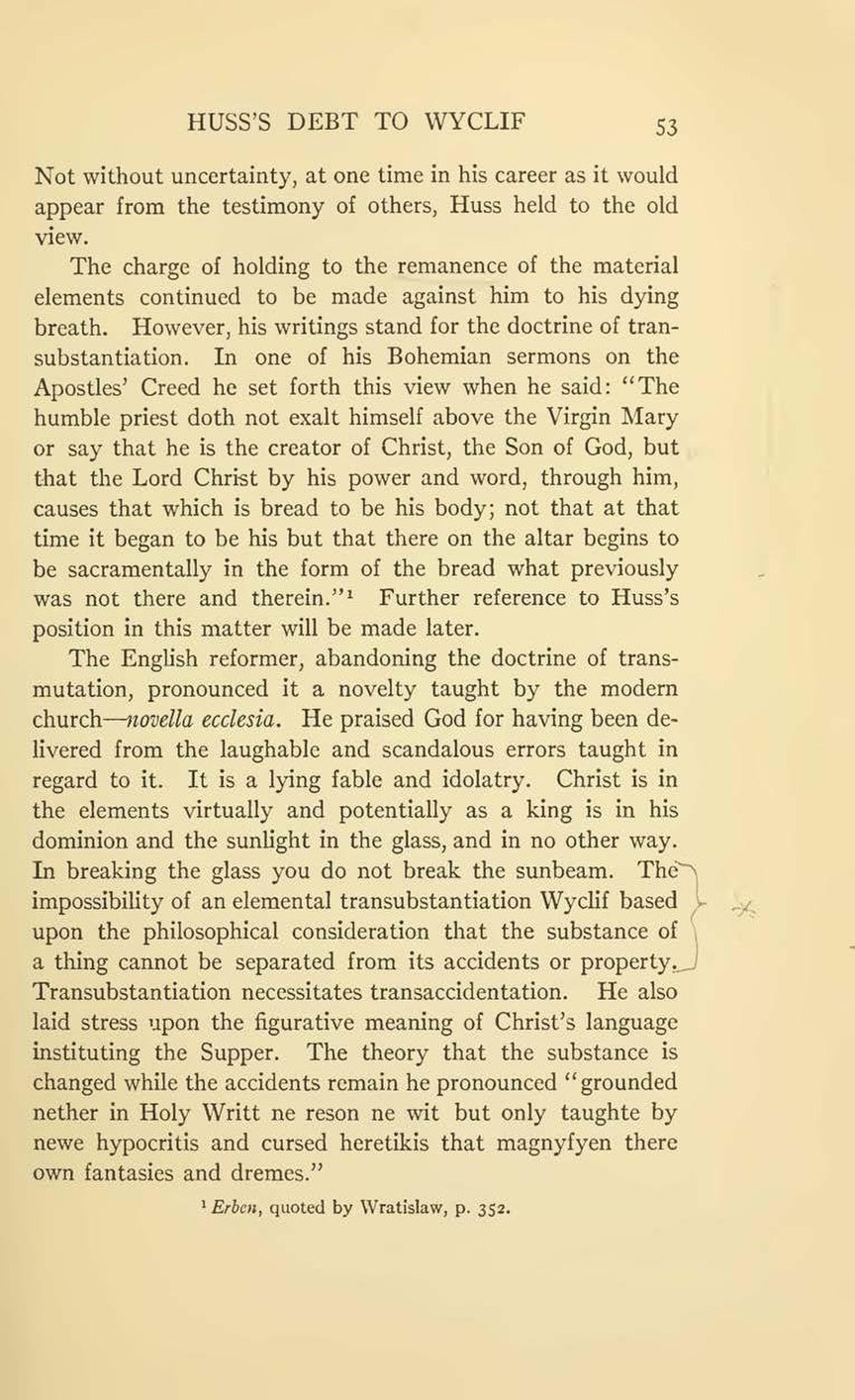Not without uncertainty, at one time in his career as it would appear from the testimony of others, Huss held to the old view.
The charge of holding to the remanence of the material elements continued to be made against him to his dying breath. However, his writings stand for the doctrine of transubstantiation. In one of his Bohemian sermons on the Apostles’ Creed he set forth this view when he said: “The humble priest doth not exalt himself above the Virgin Mary or say that he is the creator of Christ, the Son of God, but that the Lord Christ by his power and word, through him, causes that which is bread to be his body; not that at that time it began to be his but that there on the altar begins to be sacramentally in the form of the bread what previously was not there and therein.”[1] Further reference to Huss’s position in this matter will be made later.
The English reformer, abandoning the doctrine of transmutation, pronounced it a novelty taught by the modern church—novella ecclesia. He praised God for having been delivered from the laughable and scandalous errors taught in regard to it. It is a lying fable and idolatry. Christ is in the elements virtually and potentially as a king is in his dominion and the sunlight in the glass, and in no other way. In breaking the glass you do not break the sunbeam. The impossibility of an elemental transubstantiation Wyclif based upon the philosophical consideration that the substance of a thing cannot be separated from its accidents or property. Transubstantiation necessitates transaccidentation. He also laid stress upon the figurative meaning of Christ’s language instituting the Supper. The theory that the substance is changed while the accidents remain he pronounced “grounded nether in Holy Writt ne reson ne wit but only taughte by newe hypocritis and cursed heretikis that magnyfyen there own fantasies and dremes.”
- ↑ Erben, quoted by Wratislaw, p. 352.
